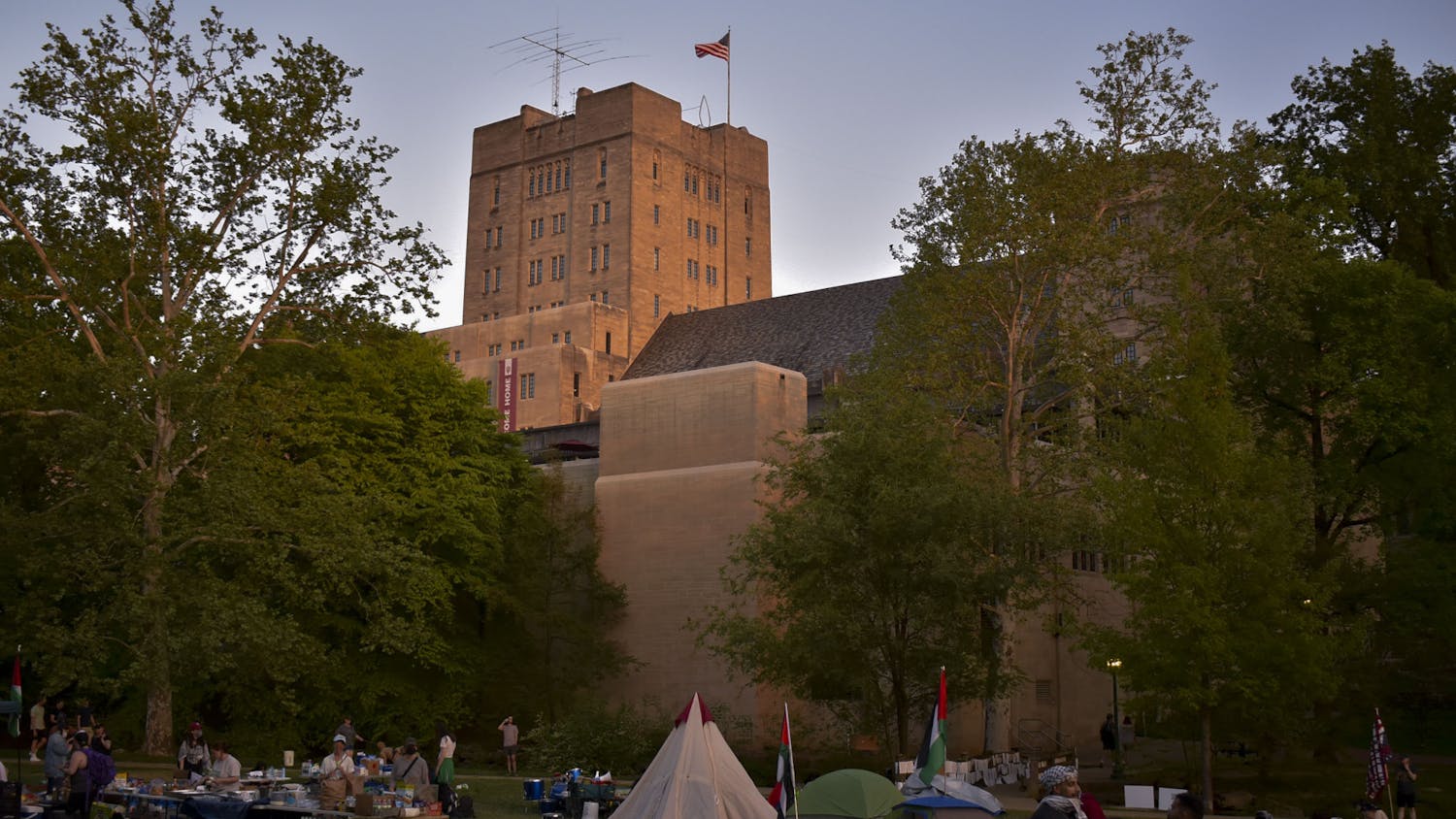Environmental racism, or unequal access to clean resources in minority communities, was the main focus of a discussion hosted Thursday evening by Pi Lambda Phi. The event was part of the Elimination of Prejudice Week, a series of events devoted to increasing awareness of prejudice and cultural issues on campus.
Two Pi Lambda Phi brothers, Thomas Mandel and Cam McDonnell, led the discussion. Mandel is the leader of IU’s Elimination of Prejudice Week. Mandel said environmental racism historically existed even here in Bloomington.
“How many people know that Bloomington has had problems with contaminated drinking water?” Mandel asked. “We weren’t affected by it at all, and we don’t really pay attention to things that aren’t going on on our campus.”
The brothers introduced topics such as water quality and air impurity around major US cities. Mandel addressed deaths from coal dust and the construction of major pipelines in economically disadvantaged cities rather than larger, richer areas. They then allowed the audience to break for discussion in small groups.
Discussion leaders defined environmental racism and the broader-reaching institutional racism in a brief presentation and then invited the audience to volunteer anecdotes in which they or others had experienced it. Students gave examples such as homeless classmates and unequal access to emergency healthcare in major cities.
Mandel played a brief video on the impact of environmental racism and government indifference toward minority communities, then presented statistics highlighting the US’s standing on child hunger and infant mortality compared to other industrial nations. He asked participants to guess the percent of people worldwide that do not currently have access to clean drinking water before revealing it as one in 10.
While Mandel led the presentation, McDonnell moved among the small audience groups to facilitate conversation and gauge discussion progress.
Mandel asked the audience to visualize what they as individuals could do to minimize the effects of environmental racism, and then what society could do to address the issue.
Students in the audience suggested educating other students about environmental racism; improving public transportation; lobbying the government on behalf of smaller, less wealthy cities with less political influence; and bringing a diverse cross-section of people together to protest environmentally racist practices and effect change.
Barry Magee, associate director of Residential Life with Residential Programs and Services, attended the discussion as part of the audience.
“While we get it in our heads and our hearts, it doesn’t always get to our hands,” said Magee. “Back on campus in the ‘90s, there was a protest, and it was successful because of the very broad nature of groups who came together.”
After the conclusion of the discussion, Mandel invited the group to attend the Friday ceremony of tearing down the Wall of Prejudice, on which students have written prejudicial and bigoted language, as the conclusion of the Elimination of Prejudice Week.



